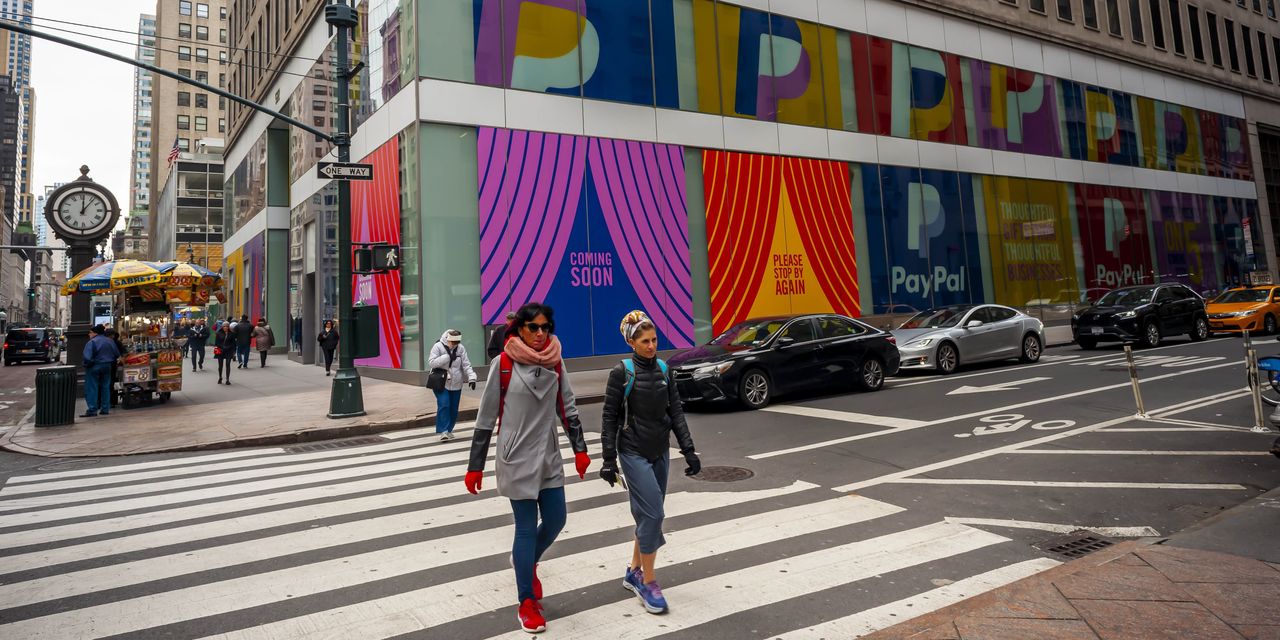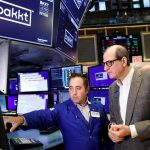
PayPal said in a statement late Sunday that it was “not pursuing an acquisition of Pinterest at this time.” The deal, talks for which leaked last week, would have combined a payments giant with broad financial ambitions and an image-sharing site that has struggled to fully capture the benefits of its role in e-commerce.
PayPal shares fell almost 12% in three days after the possible deal surfaced, a sign that investors doubted its wisdom. They closed up 2.7% Monday. Pinterest shares plunged about 13% after initially surging last week.
A deal for Pinterest, with a market capitalization of more than $37 billion, would have been one of the biggest mergers of the year and PayPal’s largest ever.
PayPal’s board and management decided Sunday to back away after determining the decline in the shares, along with other issues in the early-stage talks, would make coming to an agreement unlikely, people familiar with the matter said. With a lower share price, PayPal may have had to hand a larger portion of ownership to Pinterest investors in a stock deal, something that would further frustrate its own shareholders.
Because a deal had not yet been reached, PayPal was in the awkward position of not being able to explain its rationale for the acquisition to shareholders. The company saw Pinterest as a unique opportunity to connect with customers sooner in the shopping process, the people said.
PayPal has been trying to turn itself from a payments company to a gateway to digital commerce. It is trying to expand beyond its roots as an online-checkout option and become more of a service that helps users find new items online that they might like to buy. Buying Pinterest—a platform that lets users swap recipes and home-decor ideas—would have connected PayPal with consumers as they are considering what to buy. But investors aren’t convinced that PayPal would be able to make money off Pinterest’s 454 million monthly active users, analysts said.
“The concern is that you have a bunch of people that surf around the web looking for a couch for their new home. They might pin it, but it’s not that big of a deal. They might never buy it,” said Darrin Peller, managing director at Wolfe Research LLC.
Pinterest gets most of its revenue serving users ads, rather than connecting them to retailers and taking a cut of their shopping dollars.
Investors are also concerned that acquiring Pinterest would alienate key PayPal partners including online merchants and the social-media platforms that use it to process transactions, said Chris Donat, senior research analyst at Piper Sandler.
PayPal was once part of eBay Inc. The payments company has grown rapidly since its 2015 divorce from the online marketplace, in part because of its partnerships with payments processors including Visa and Mastercard, regional banks and merchants.
PayPal “needs the degrees of freedom that come with being independent,” Mr. Donat said.
PayPal wants to roughly double its active users to 750 million over five years, Chief Executive Dan Schulman said during an investor-day presentation earlier this year. To get there, the nearly 23-year-old company is working on an array of tools designed to attract and monetize users, including bill payments and crypto. Another key to the company’s growth goal is bringing users to PayPal sooner in their shopping experience. That could increase payment volume, and PayPal would be able to charge merchants for access to their growing customer bases.
The potential Pinterest deal’s fast undoing was reminiscent of Salesforce Inc.’s abandoned takeover pursuit of Twitter Inc. in 2016. Both were deals proposed by tech royalty for buzzy, beloved-but-less-profitable platforms. Salesforce stock fell when the deal talks leaked and CEO Marc Benioff was forced to abandon the idea.
PayPal’s record as an acquirer may also have given investors some reason for skepticism. Venmo, the payment app with millions of young users that PayPal acquired in 2013, still hasn’t turned a profit for its parent company.
—Ben Otto contributed to this article.
Write to Orla McCaffrey at [email protected] and Cara Lombardo at [email protected]
Copyright ©2021 Dow Jones & Company, Inc. All Rights Reserved. 87990cbe856818d5eddac44c7b1cdeb8








